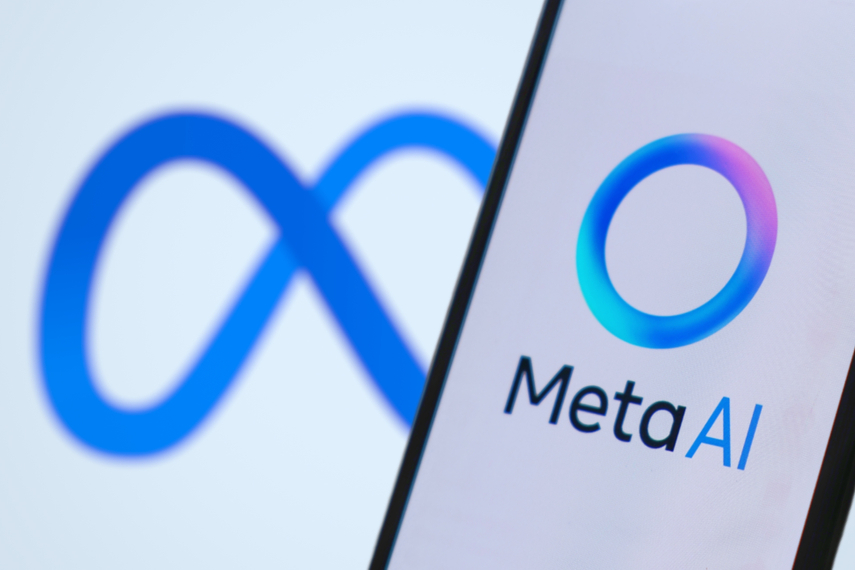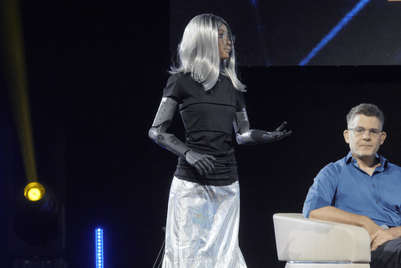
Meta is aiming to transform digital advertising by enabling brands to fully create and target ads using AI by the end of 2026, The Wall Street Journal reports. This ambitious goal will automate the entire advertising process across Meta’s family of apps, including Facebook and Instagram, which together serve 3.43 billion active users globally.
The new AI-powered tools will allow advertisers to simply submit a product image or business URL along with a budget, after which Meta’s AI will autonomously generate complete advertisements—encompassing images, videos, and text—and determine optimal audience targeting.
The system will also provide budget recommendations and decide which platform, Facebook or Instagram, is best suited for each campaign. A standout feature is real-time ad personalisation, where AI delivers different versions of the same ad to users based on variables like geolocation, enhancing relevance and engagement. This marks a significant evolution from Meta’s current AI capabilities, which primarily assist in tweaking existing ads.
Meta CEO Mark Zuckerberg described the move as “a redefinition of the category of advertising,” emphasising the company’s goal to build an AI “one-stop shop” where businesses can set goals, allocate budgets, and let the platform handle all aspects of ad creation and deployment.
The system is expected to be particularly beneficial for small and midsized businesses, which often lack dedicated advertising infrastructure, potentially broadening Meta’s advertiser base by making ad creation more accessible and efficient.
Meta has already begun testing generative AI ad features with select advertisers, indicating a phased rollout ahead of full implementation. Since launching AI-assisted advertising tools in 2022, the company has reported strong financial results, including a 16% year-over-year revenue increase in Q1 2025 and a 22% improvement in return on ad spend for advertisers using AI tools. With advertising accounting for over 97% of Meta’s revenue, this AI-driven automation could profoundly reshape the digital marketing landscape.
According to The Wall Street Journal, the announcement has sent ripples through the marketing industry, with shares of major marketing firms such as WPP, Publicis Groupe, and Havas falling sharply amid concerns about disruption to traditional advertising and media agencies.
Marc Langenfeld, head of media at VaynerMedia APAC, told Campaign: “We’re not surprised or worried by Meta’s plans. AI’s evolution is exciting and a huge unlock—whether you’re a startup without in-house resources or a Fortune 100 brand looking to scale faster and boost mental availability. That said, AI still has limitations, especially with nuance and accuracy like product descriptions and benefits. It’s not a ‘set and forget’ solution yet. While automation can drive efficiency, it risks a sea of sameness—the Dead Internet. The human element remains key: staying on top of platform changes, what people care about, and ensuring cultural and contextual relevance that cuts through.”
Meta’s commitment to AI is signalled by its increased capital expenditure forecast for 2025, now expected to reach between US$64 billion and $72 billion, reflecting heavy investment in AI infrastructure.
While the move signals a major shift toward automation, some brands have expressed concerns over losing creative control and the authenticity of AI-generated ads. Nonetheless, Meta’s strategy places it at the forefront of an industry-wide AI transformation, as competitors like Snap, Pinterest, and Reddit also ramp up investments in AI and machine-learning tools to attract advertisers.



.jpg&h=334&w=500&q=100&v=20250320&c=1)


.jpg&h=334&w=500&q=100&v=20250320&c=1)


.jpg&h=334&w=500&q=100&v=20250320&c=1)



.jpg&h=268&w=401&q=100&v=20250320&c=1)


.png&h=268&w=401&q=100&v=20250320&c=1)

.jpg&h=268&w=401&q=100&v=20250320&c=1)
